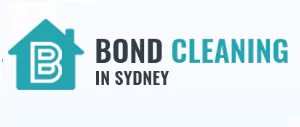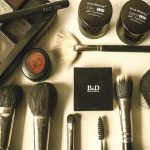Achieving financial freedom is tough but a minimalist lifestyle can make it easier.
The less money you spend on useless stuff, the more you’ll save for your future. However, people can mistake minimalism for something it’s not because it doesn’t have a straightforward meaning.
It’s neither a competition about who can own the least stuff nor a lifestyle that requires constant sacrifice. The best way to put it is to think of minimalism as a way to live intentionally. It’s about owning and purchasing only the stuff you use on a regular basis.
But it’s way deeper than that. Let’s explore how a minimalist lifestyle can really put you on the best path for your financial future.
No Debt
The biggest roadblock anyone can have on their way to financial freedom is the accumulation of debt.
The more debt you have, the more money you’ll spend from your paycheck and the more difficult it will get to save funds. It’s a fact that a lot of graduated individuals are in debt due to student loans.
In many cases, the loan is too high and it eats away years of people’s hard-earned money keeping them broke with no savings.
But after clearing all their debt, they start purchasing stuff through credit cards even if they don’t have sufficient money left. If not aware, this can build up a pile of debt which will again take years to clear.
The best way to counter this? Only purchase essential items and don’t overspend. Make it a rule to not purchase something unless you’ve put away a portion of your salary in the savings account.
Tracking Expenses & Budgeting
Creating a budget and tracking expenses is a crucial part of a minimalist lifestyle.
You don’t want to be that person who doesn’t know where the money goes. To know how much you’re spending, create a budget and track your expenses. You can do this by keeping notes or an Excel sheet. After making a purchase no matter how small it is, write down the name of the item and the money spent.
During the month, if you see yourself getting closer to your budget too fast then simply reduce your expenses for the next few days.
At the end of the month, take another close look at it and count your overall expenses. If you’re not happy with the numbers then you can easily cut down by analyzing the less resourceful items on the list and removing them from next month.
This will allow you to manage your budget which will lead to more savings and investments and hence financial freedom.
Declutter & Sell
The average person today owns way too much stuff. Even worse, they don’t even use a lot of these items.
Not only does this add clutter to your home but also takes away a lot of your hard-earned money. Sorting and decluttering is the best way to train yourself to own and purchase only the essentials.
Additionally, while decluttering, you’ll discover that a lot of your stuff is in good condition which means you can sell them to those in need and make a good chunk of money. This way, you not only train yourself to save but also earn in the process which can be added to savings.
Making Investing a Priority
The above 3 methods may help you save money but if you don’t prioritise investing then achieving financial freedom will always be a dream. Minimalists are very conscious about their choices. The first thing they do when they get their paycheck is take a portion and invest it for their future.
Investing is no rocket science. There are several platforms available that you can use for this purpose. Use apps like Robinhood and Acorns for micro-investing. For bigger investments, it’s recommended to take the help of a professional like an investment adviser.
Wrapping up
Minimalism is not just about owning less stuff. It’s about prioritizing your future, making conscious choices, and using money for a better purpose. Once you get into the habit of living like a minimalist, it won’t take you long to have sufficient funds to invest in your future and achieve financial freedom.















